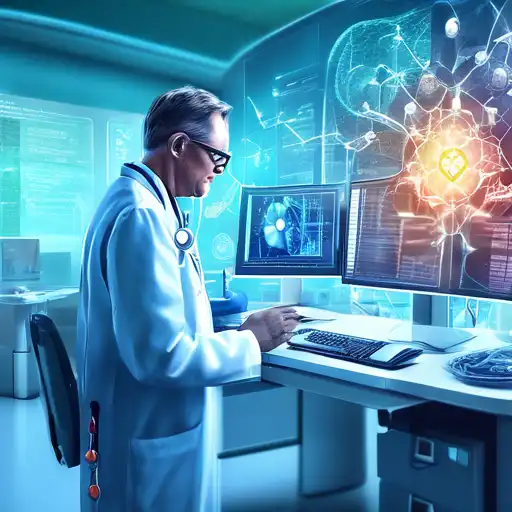The Transformative Impact of Data Science on Modern Healthcare
In the rapidly evolving world of healthcare, data science has emerged as a cornerstone of innovation, driving improvements in patient care, operational efficiency, and medical research. By harnessing the power of big data, machine learning, and predictive analytics, healthcare providers are now able to offer more personalized and effective treatments than ever before.
Personalized Medicine and Predictive Analytics
One of the most significant contributions of data science to healthcare is the development of personalized medicine. Through the analysis of vast datasets, including genetic information, healthcare professionals can now predict an individual's susceptibility to certain diseases and tailor treatments accordingly. This approach not only improves patient outcomes but also reduces the risk of adverse reactions to medications.
Enhancing Operational Efficiency
Data science is also revolutionizing the operational aspects of healthcare. By analyzing patterns in patient admissions, treatment times, and resource utilization, hospitals can optimize their workflows to reduce wait times and improve the overall patient experience. Furthermore, predictive models can help in managing inventory and staffing levels, ensuring that healthcare facilities operate more efficiently.
Advancements in Medical Research
The role of data science in medical research cannot be overstated. Researchers are now able to analyze complex biological data at an unprecedented scale, accelerating the discovery of new drugs and therapies. Machine learning algorithms are particularly useful in identifying potential drug candidates, significantly reducing the time and cost associated with traditional research methods.
Challenges and Ethical Considerations
Despite its many benefits, the integration of data science into healthcare is not without challenges. Issues such as data privacy, security, and ethical use of patient information are of paramount concern. It is essential for healthcare providers and data scientists to work together to establish robust frameworks that protect patient confidentiality while leveraging the power of data to improve care.
In conclusion, data science is playing a pivotal role in transforming healthcare, offering new opportunities for personalized medicine, operational efficiency, and medical research. As technology continues to advance, the potential for further innovations in this field is limitless. However, it is crucial to address the ethical and privacy challenges to fully realize the benefits of data science in healthcare.
For more insights into how technology is shaping the future of healthcare, explore our articles on medical technology and big data in healthcare.
